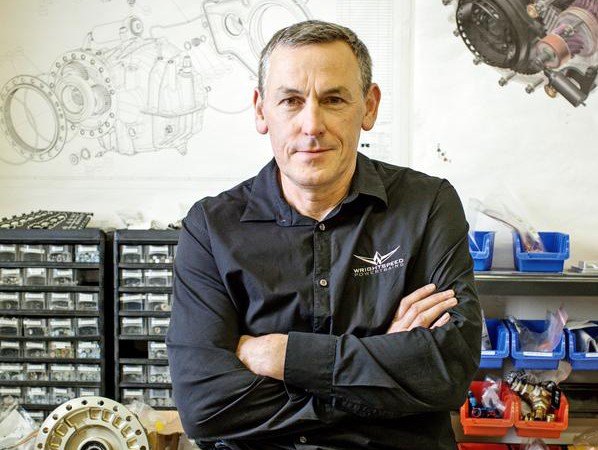Wright: Tesla's Camry 'Not Possible' Despite Ongoing Success
Tesla co-founder Ian Wright says that while he’s surprised by his old company’s success, the idea of a mass-market EV still doesn’t seem likely.
During an interview with San Francisco Business Times about Wrightspeed’s relocation from San Jose to Alameda, Calif., Wright was pleased that Tesla “worked out… quite a lot better” than he originally thought it would, praising the success of the Model S.
As for Tesla’s overall goal of building EVs “cheaper and cheaper and cheaper until they were outselling the Camry,” he still thinks that isn’t possible, having never been “on board” with the idea among co-founders Martin Eberhard and Mark Tarpenning.
As for his own company, which makes hybrid gas-electric turbine drivetrains for medium and heavy commercial vehicles like garbage and delivery trucks, Wright says there’s a $5 billion market in the United States for his drivetrains, $2 billion alone in garbage trucks. Clients such as FedEx and Ratto Group have installed Wrightspeed tech into their fleets in California, while the California Energy Commission bestowed his company with nearly $7 million in grants.
Speaking of funding, Wright is preparing an IPO in the event he does take his company public, hoping he might do better than when he sold his Tesla shares in 2010 prior to their astronomical appreciation.
Seattle-based writer, blogger, and photographer for many a publication. Born in Louisville. Raised in Kansas. Where I lay my head is home.
More by Cameron Aubernon

































Comments
Join the conversation
Pure EV success hinges on battery service life and replacement cost. If Model S batteries tank after 8 or 10 years and cost $25K to replace, it's not going to be pretty. If they end up lasting 20 or 25 years there's a much more compelling value proposition.
Tesla's success is partly due to it being a Veblen good, like the Rolls Royce use to be. See: https://en.wikipedia.org/wiki/Veblen_good
"As for his own company, which makes hybrid gas-electric turbine drivetrains for medium and heavy commercial vehicles like garbage and delivery trucks, Wright says there’s a $5 billion market in the United States for his drivetrains, $2 billion alone in garbage trucks." While these uses are absolutely ideal for a hybrid solution, I don't like Wright's chances if GM, Ford or Toyota decides to really get into this market and I can't see why they eventually wouldn't.
This sounds like a load of bs. A medium speed 2 stroke diesel hybrid would beat the pants off a gas turbine hybrid in most every way for this application and slow speed 2 stroke would beat the pants and shirt off in efficiency, although not as good for transportation uses due to size constraints. D Battery tech is about to blow past current limitations of current formulations within 5 years, and then its game over for oil and gasoline as primary fuel source. The Saudis even know it and are scared sh*tless. Dual carbon cathode and anode batteries ate coming, and they are game changing--not to mention LiS formulations and several other breakthroughs.